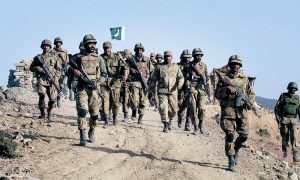When the great British actor, the late Richard Burton, wrote about Churchill in a New York Times article in 1974, that to play the role of Churchill was to hate him, he was banned by the BBC drama section for life! Why is it that criticism of Churchill attracts highly charged reactions from the normally composed British upper classes and other sections of British society?
Was Churchill a truly great man, or did he have a brutal and mean side that made men like Burton hate him? Churchill engaged in the most merciless war crimes as well as crimes against humanity which are omitted in standard books deliberately so as to propagate a narrative that suits the Anglo-American Establishment. Anyone with an awareness of these massive crimes and his utterly brutal nature cannot but have a reaction similar to Burton’s.
When Churchill directed Hugh Dalton to set up the Special Operations Executive (he called it the Ministry of Ungentlemanly Warfare) he told him: “Now set Europe ablaze”. When Stuart McCrae developed the Sticky Bomb during WWII, the officers of the Ordnance Board “expressed revulsion that such a dirty weapon could have been conceived by a civilized human being.” The Sticky Bomb used nitroglycerine and was built in such a way that it created a “deadly inward blast that flung high-velocity shrapnel in the interior of the tank,” condemning its inmates to a most horrible death. They told McCrae that it “broke all the rules of the game and just could not be permitted.” When Churchill found out about these objections he scribbled a handwritten order on a 10 Downing Street memo pad stating: “Sticky Bomb. Make one million. WSC.” He wanted German tank crews to die horribly. These two incidents shed light on Churchill’s inherently sadistic and brutal nature. But there are other, much more horrible things, that he did.
It was not Adolf Hitler, but Winston Churchill, who deliberately initiated the massive bombing of civilian populations – it was given the name “Strategic Bombing”! But as the American writer Benton Bradberry concludes, “In a word the purpose of strategic bombing was genocide.” Churchill became PM on May 10, 1940, and on the night of May 11, 1940, British planes dropped bombs on civilian populations of Hamburg and Duesberg. Historian F.J.P. Veale writes: “The raid on the night of May 11, 1940, although in itself trivial, was an epoch-making event since it was the first deliberate breach of the fundamental rule of civilized warfare that hostilities must only be waged against enemy combatants.” A War Cabinet meeting was held on May 12. It is noted in the minutes that the Prime Minister was “no longer bound by our previously held scruples as to initiating `unrestricted’ air warfare.” What does this mean? It means that unarmed civilians are legitimate bombing targets! But the use of the phrase “previously held scruples” is significant. These scruples were held until Churchill assumed power. Then these scruples vanished. Britain bombed German civilian populations for three months without any German retaliation. These raids were never reported in the Zionist-controlled British press!
A.J. Spaight of the British Air Ministry published a book in the year 1944 with the title Bombing Vindicated. He wrote: “Because we were doubtful about the psychological effect of propagandist distortion of the truth that it was we who started the strategic bombing offensive, we have shrunk from giving our great decision of May 11th, 1940, the publicity which it deserved. That, surely, was a mistake. It was a splendid decision.” When the great Oxford historian A.J.P. Taylor wrote about “The almost universal belief that Hitler started the indiscriminate bombing of civilians, whereas it was started by the directors of British strategy, as some of the more honest among them have boasted”, he was never again allowed to lecture at Oxford! Like Richard Burton, he too was banned but without explicitly saying so.
On July 19, 1940, Hitler addressed the Reichstag and made an unconditional peace offer to Britain. He also said that if the bombing of civilians did not stop Germany would retaliate. The British war cabinet was split over the peace offer but Churchill insisted on war. He responded to the peace offer by bombing Berlin. And when Hitler retaliated he was condemned for bombing civilians!
The bombing of the city of Dresden is the worst war crime in the history of mankind. It was also an unparalleled crime against humanity. Dresden had a population of about 600,000 and to this were added about 600,000 refugees from Eastern Europe. Dresden was bombed on the night between February 13 and 14, 1945. As one author puts it:
“Churchill had asked for `suggestions how to blaze 600,000 refugees’. He wasn’t interested in how to target military installations 60 miles outside of Dresden. More than 700,000 phosphorus bombs were dropped on 1.2 million people. One bomb for every 2 people. The temperature in the centre of the city reached 1600 degrees centigrade. More than 260,000 bodies and residues of bodies were counted. But those who perished in the centre of the city can’t be traced. Approximately 500,000 children, women, the elderly, wounded soldiers, and the animals of the zoo were slaughtered in one night.”
The scale of the attack on Dresden has been described by historian David Irving. He writes that at 6:49 A.M. that morning, February 14, 1945, the British Air Ministry issued a communiqué that 1400 bombers had attacked Dresden. However, after the British bombers had done their job, 1350 American bombers, the Flying Fortresses, and Liberators took off and bombed Dresden. Gerard Menuhin writes that after the night of bombing on “the following morning came low-flying craft, which mowed down visible survivors.” They mowed down visible survivors! Menuhin quotes from Irving’s book The Destruction of Dresden (1963), “Even the huddled remains of a children’s choir were machine-gunned in a street bordering a park.” Why? For what? The American writer Kurt Vonnegut happened to be in Dresden when it was bombed. He wrote: “You guys burnt the place down, turned it into a single column of flame. More people died there in the firestorm, in that one big flame, than died in Hiroshima and Nagasaki combined.”
Gerard Menuhin quotes Kate Hoffmeister who survived Dresden: “I struggled to run against the wind in the middle of the street … We … couldn’t go across … because the asphalt had melted. There were people on the roadway, some already dead, some still lying alive but stuck in the asphalt … They were on their hands and knees screaming.” One eyewitness who survived told of seeing “young women carrying babies running up and down the streets, their dresses and hair on fire, screaming until they fell down, or the collapsing buildings fell on top of them.” All this suffering was the result of the hideous thinking of Churchill. How can he be forgiven?
Historian David Irving quotes an RAF pilot:
“There was a sea of fire covering in my estimation some forty square miles. The heat striking up from the furnace below could be felt in my cockpit. The sky was vivid in hues of scarlet and white, and the light inside the aircraft was that of an eerie autumn sunset. We were so aghast at the awesome blaze that although alone over the city we flew around in a standoff position for many minutes before turning for home, quite subdued by our imagination of the horror that must be below. We could still see the glare of the holocaust thirty minutes after leaving.”
Another pilot noted that from a distance of 150 miles the fires were not only visible, but they were also growing brighter instead of getting dimmer.
The decision to bomb and firebomb unarmed citizens is a crime of the greatest magnitude by any standards of international law and morality. It is inhuman, cruel, brutal, savage, and Satanic beyond the pale. And the one person in the office responsible for this holocaust was not Adolf Hitler but Winston S. Churchill. In 1964, David Irving had the opportunity to visit the underground Cabinet rooms from where Churchill conducted the war. He noticed something which gives an insight into Churchill’s brutal nature, and which everyone should know. In the preface to his book Holocaust he writes:
“Then I noticed a stereoscopic picture viewer set up in one corner for wartime VIP visitors; I switched it on – and found that the stereo pictures that the prime minister had left on display were an aerial view of Dresden after the February 1945 air raids; row upon row, street upon street, acre upon acre of gutted lifeless buildings. He was not ashamed of it; indeed, he had boasted of his achievement.”
PART II
Churchill was the key player in the Dresden Holocaust. But he has the distinction of having created not one but two holocausts with a span of two to three years. In the Dresden Holocaust half a million people died. In the Bengali Holocaust, created almost entirely by Churchill, the number of people who died was anywhere from five to seven million i.e. ten to fourteen times more than the Dresden Holocaust.
Churchill once said: “I hate Indians. They are a beastly people with a beastly religion…They [Bengalis] breed like rabbits.” His nation had plundered India to the tune of trillions of pounds over a period of time. The assessment of the British rule by Australian scholar Gideon Polya, who has a Ph.D., is a medical doctor, and is Jewish, is worth reading. He writes:
“Two centuries of British rule in India were repeatedly accompanied by horrendous human disasters due to callous exploitation by those responsible for their enslaved subjects, the human toll from these events amounting to scores of millions of people. The two principal disasters suffered by Bengal were the Great Bengal Famine of 1769-1770 that consumed about 10 million people and the Bengal Famine of 1943-1944 that ultimately swept away as many as 5 million people through starvation and attendant disease in the latter half of World War 2. In between these 2 appalling events Bengal, and indeed India, suffered 2 centuries of famine and merciless exploitation that killed scores of millions and reduced hundreds of millions of people to wretched lives on the edge of the abyss.”
Professor Madhursee Mukerjee has published a book (Churchill’s Secret War: The British Empire and the Ravaging of India during World War II) on the Bengal Famine in which she has provided evidence that Churchill deliberately created and ignored the plight of Bengalis. Responding to questions about her book in an article that appeared in Harper’s Magazine, Mukerjee wrote:
“My indictment is based on what Churchill did, not on what he said. The Ministry of War Transport papers, the Cherwell Papers, and the official histories of British wartime food supply, shipping, and economy are my key sources. They show, for instance, that the War Cabinet scheduled eighteen ships to load with Australian wheat in September and October 1943. Not one of these ships was destined for famine-stricken India.
Had anyone else been prime minister, he would have striven to relieve India’s plight instead of consigning wheat to stockpiles. Churchill’s diatribes, as recorded in Amery’s and others’ diaries, are, however, useful in understanding why he acted as he did. Famine had failed to temper his hostility toward Indians. Churchill would tell his secretary that Hindus were a foul race protected by their rapid breeding from ‘the doom that is their due.’ He wished Arthur Harris, the head of British bomber command, could `send some of his surplus bombers to destroy them.’”
Ironically, most of those who died in the Bengal Famine were Muslims. Carrying out an assessment of Mukerjee’s book, Gideon Polya has pointed out that the Bengal Famine really began at the end of 1942 when three factors converged to create a most deadly situation. The 1942 hurricane combined with fungal infestation and the brutal British suppression of Bengali nationalists created a serious food shortage. The cessation of rice imports from Japanese occupied Burma and the removal of hundreds of thousands from areas close to Japanese occupied areas further aggravated the food situation seriously (“instant impoverishment and demand on rice stocks”). And then there was the Boat Denial policy “that ostensibly was meant to delay a Japanese invasion but which condemned millions to death through lack of fishing and food distribution.” Polya adds further factors including:
“[V]arious British encouragements of capitalist hoarding and profiteering; export of grain from India associated with hugely decreased imports of grain; British unresponsiveness in India and in London; lack of shipping in the Indian Ocean due to Churchillian fiat at Casablanca (especially in 1943); government protection of the food security of soldiers, civil servants and defence industry workers in Calcutta (a major industrial city undergoing a wartime boom and which sucked food out of a starving but rice-producing countryside); inflation (due to the British running up a huge financial debt to India during WW2 and Government rice purchases).”
As a result of all these factors and measures, the price of rice increased 6-fold! The poor people could not afford such a high price, which, as Polya points out, became “a real killer”. Churchill bears responsibility for the Famine of Bengal in which, according to Mukerjee’s estimates, six to seven million Bengalis died. This was one of the greatest crimes against humanity, a crime on which the British, and hence the entire Western academia, is utterly silent.
In his book Germany’s War, John Wear has highlighted the massacre of French soldiers on Churchill’s orders in July 1940. The French were an ally of the British in this preplanned war against Germany. Wear writes:
“In addition to ignoring all German efforts to make peace, Churchill and other leaders of Great Britain began to conduct a war of unprecedented violence. On July 3, 1940, a British fleet attacked and destroyed much of the French fleet in Oran in southwest Algeria to prevent it from falling into German hands. The French navy went to the bottom of the sea and with it 1,297 French sailors. Churchill and his British government did not seem to mind that 1,297 of their French ally’s sailors were killed in the attack.”
John Wear adds that low-flying British aircraft gunned down French sailors who were struggling in the water. This brutality was repeated with children and escaping civilians in Dresden several years later. Wear further states: “This deliberate British war crime was followed by the assassination of French Adm. Darlan by British agents in Algiers.” This assassination is in itself another crime of Churchill, as the assassination could not have been carried out without his permission. Is there any explanation of the massacre of French sailors that any established law can accommodate? This is a scale of brutality that Churchill was capable of manifesting.
Churchill’s idea of using civilians as fodder in the Lusitania affair for inciting U.S. public opinion against Germany during WWI is now known. It has been pointed out by Professor Revilo P. Oliver that since Churchill already knew in 1913 that the war will occur he “had the British liner, Lusitania converted to an auxiliary cruiser, armed with twelve six-inch naval canon – a fact known to the publishers of the authoritative handbook, Jane’s Fighting Ships, in which the Lusitania was so listed in the volume for 1914.” The Germans had announced that they will target any ship carrying arms and ammunition to Britain. In order to draw the U.S. inti WWI, Churchill had the idea of trapping Germany into sinking a ship with civilians on board by loading ammunition on that ship.
Churchill had, earlier, asked Commander Joseph Kenworthy of naval intelligence to prepare a report on the “political results of an ocean liner being sunk with American passengers on board.” When Lusitania was to sail from New York the German embassy advertised in the papers warning potential passengers not to travel on Lusitania as it was known to them that it was carrying ammunition. The American passengers ignored the advice. They thus became what Churchill had referred to as “45,000 tons of live bait”. AS Professor Revilo Oliver describes it:
“A German submarine took the bait, and British Admiralty took the action necessary to ensure the maximum loss of life. In this country, there was an epidemic of shrieking about the `barbarity’ of submarine warfare and especially the `frightful’ and `savage’ conduct of German commander of the submarine, who had torpedoed the ship without first coming to surface to be destroyed by the concealed naval guns with which, his copy of Jane’s informed him, the Lusitania was equipped. But that minor detail was omitted when whipping up the passion of the suckers.”
Commander Joesph Kenworthy later wrote in his book, “The Lusitania was deliberately sent at considerably reduced speed into an area where a U-boat was known to be waiting and with her escorts withdrawn.” Churchill was then the First Lord of Admiralty and was responsible for all decisions, from withdrawing the escort of Lusitania, to ensuring that there are maximal deaths by delaying rescue operations, etc. Approximately 1200 people died in this incident and they were Churchill’s “live bait” (what a cruel phrase). President Wilson, a stooge of the international bankers, sent a stern protest to the Germans. Gerry Docherty and Jim Macgregor write:
“Germany deeply regretted the loss of American lives and offered compensation, but complained that British merchant vessels had been instructed by Winston Churchill to ram and destroy German submarines. It meant that no submarine commander could safely surface, give warning and allow passengers and crew to take to boats before the torpedoes were fired.”
When Wilson accused Germany of lying the U.S. Foreign Secretary William Jennings Bryan resigned because he did not want to be a part of the U.S. government’s lies.
Instead of putting Churchill in the dock for his massive crimes, he has, through the engineering of consent, been made into a great icon. In a TV poll in 2002 he was voted the “greatest Briton” of all time! He was rewarded with a Nobel Prize in literature. The Nobel Prize citation stated that the prize was being awarded “for his mastery of historical and biographical description as well as for brilliant oratory in defending exalted human values.” He was being rewarded for wreaking death and destruction for the International banking cabal, and for unexampled cruelty, and this death and destruction was called “defence” of “exalted human values.”
The author is a former Vice-Chancellor University of Punjab. Some parts of the article have been excerpted from his forthcoming book Pawns of the Bankers in WWII: Churchill, Hitler, Roosevelt, Stalin.














